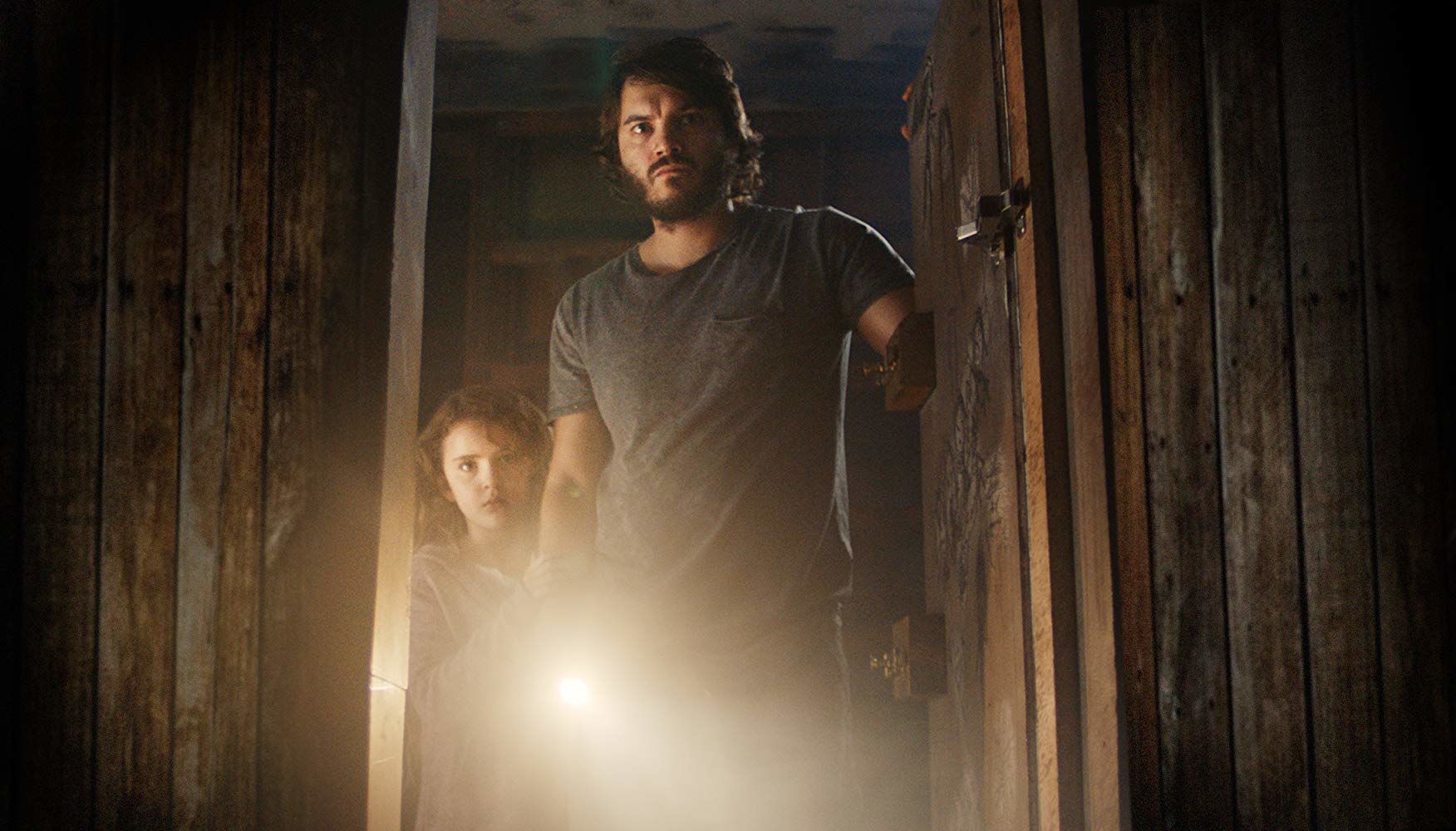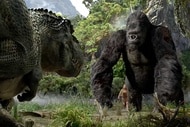Create a free profile to get unlimited access to exclusive videos, sweepstakes, and more!
Freaks directors reveal how a podcast inspired their sci-fi thriller's big twist

For months, we've been urging you to seek out the sensational science-fiction thriller Freaks, while simultaneously trying to safeguard the exciting secret in its second act. Now, with the film in theaters, SYFY FANGRRLS is ready to dig into spoilers and explore how Freaks super twist was inspired by This American Life and its co-creator's real life.
Major spoilers below for Freaks.
Written and directed by Zach Lipovsky and Adam B. Stein, Freaks centers on 7-year-old Chloe (Lexy Kolker), an unusual girl who lives in a ramshackle house with her frantic father (Emile Hirsch), who never lets her go outside. He insists there are bad guys out there who would do them harm. But despite his warnings, Chloe can't help but yearn for the things just outside her door: sunshine, friends, and ice cream from a truck that seems to show up just to tempt her.
Stein and Lipovsky embed their film in Chloe's perspective, so the audience only knows as much as she does about her circumstances. But as Chloe begins to break her father's rules and explore the world beyond her doorstep, she — and we — learn family secrets that radically shift the genre of this fascinating film. Simply put, Chloe discovers she and her dad are "freaks," meaning super-powered people whose very existence is considered a threat by a fearful government that would have them annihilated. As Chloe discovers her powers and the very real threats of the outside world, Freaks spins into a sensational origin story unlike the superhero movie genre has ever seen before.
But what's the origin story of the film itself?
When SYFY FANGRRLS sat down with Stein and Lipovsky at Fantasia International Film Festival, we dug into all of this. In a previous spoiler-free post, we shared how this pair's history in reality TV and kids' entertainment began their journey to making Freaks. Now, we delve into spoilers to uncover how this writing/directing duo created their unique spin on superheroes.
While the societal stigma supers face in Freaks might have you thinking X-Men was an influence, Stein offered a much more surprising source. "One of the things that was an early inspiration," he said, "was This American Life podcast that John Hodgman did where he interviewed people about superpowers."
The 2001 episode titled "Superpowers" featured a segment called "Invisible Man vs. Hawkman," in which the comedian asked people to pick a superpower: invisibility or flight. But Hodgman didn't just ask which would you choose; he also asked what they'd do with it. "[Those interviewed] talk about going to Paris, or go to spy on their ex-husband, or whatever," Stein said of the segment. "And at the end of it, he's like, 'Do you know what nobody said? Nobody said, 'I would save people or help people.'"
Stein said that intrigued him and Lipovsky. They wondered what would happen if people with such powers existed in our world. "We were like, 'Okay, what is the realism of a real world where super abilities are developing?" Stein said. "Nobody's going out to help people. They'd use it for their own little benefit. And the reaction of society to that would be to make that illegal—"
Gracefully finishing the line of thought, Lipovsky interjected, "Then their reaction to that would be to do it more but in secret. Which would make them do worse things, which would make society now do even worse things. So that cycle of violence continues."
Rather than superpowered heroes who are dedicatedly noble and conveniently invincible, these two wanted to explore a story of superpowered people whose paths weren't so clear. "We just decided this is a world where there are superpowers but no heroes. No heroes, no villains, just people. And they all live in this gray area. No one's good or evil," Stein said. "So much of superhero movie world is all about the black and the white. Usually, when they dabble in gray it's because there's a disturbed character who then eventually learns to do good. We wanted to approach it from a different angle: What if you had characters who weren't learning to do good, if they're just still trying to just get by?"
With a nod, Lipovsky concluded, "So, the goal was they're never trying to save the world or never trying to save someone who isn't themselves — unless it's their family member. Basically, their goal is just what our goals would be. If my daughter was in danger or my dad was in danger, I would try and protect them. That's all the goals they have in the movie."
Family proved the other major influence on Freaks' origin. When they were developing the film, Stein was a newly minted dad who was crazy about his young son, deeply dedicated to the boy's safety, and "so sleep deprived." This became the inspiration for Chloe's dad, who spends his every waking moment using his powers to create a literal protective bubble around his daughter. "With the dad character," Lipovsky explained of Stein's experience, "we took that to an exaggerated degree." All the effort of protecting his child means even this super dad is exhausted all the time. "It's literally draining his body. And so, it's all tied to that relatable experience."
Beyond this, Stein wanted to explore the challenges he imagined a single parent might face, especially one who is forced to parent entirely on his own. "I found it really tough trying to figure out how to be a dad at first," he admitted. "And I read a lot of books and took parenting classes and got a lot of mentorship and stuff. It was still incredibly hard. And I kept imagining for this character. What if you had to be a single dad without any of those things? He's never taken a parenting class. He's never had a parenting role model. He's got no community. There's no support. He's not a great dad, but he still loves her inside. And that, I thought, was really fascinating and also allowed us to explore the ugly side of parenting, which you're not always at your best."
"Sometimes you say things that you regret," Stein continued. "And when your kid says something to you like that, it can hurt. We hadn't seen that a lot [in movies]."
In the film Chloe says some very hurtful things to her father, like wishing he was dead. Lipovsky admitted, "A lot of lines in the movie are from [Stein's] son." Such lines were not meant to be shocking, but rather to further ground in the film in reality, as this is how real kids behave when lashing out. "I hadn't seen that before [in movies]," Stein mused, "I was experiencing it and thinking, 'Oh my gosh, is this just my kid saying this to me? What am I doing wrong?'"
Rather than running for this uncomfortable reality of parenting and its prickly vulnerability, Stein and Lipovsky embraced both in Freaks. In doing so, they created a child-heroine who is neither some tired stereotype of adorable, precocious moppet, nor a relentlessly honorable superhero. She's a kid: Sometimes sweet, sometimes cuddly, sometimes sulking, sometimes pitching tantrums violent and vicious, and she has superpowers. Which makes the mercurial emotions of childhood further fascinating and more emotionally charged a challenge than some creeping villain in a mask and cape.
Freaks is now in theaters.


























